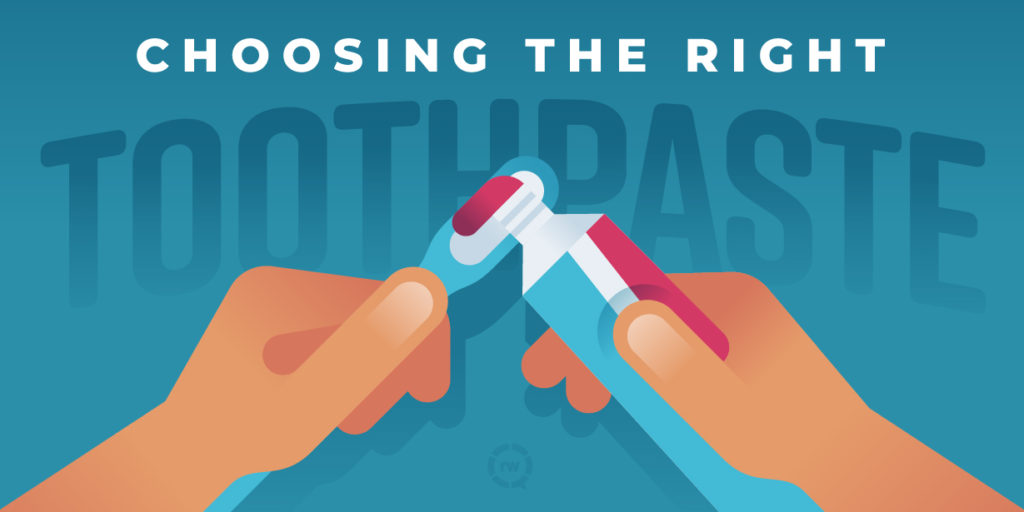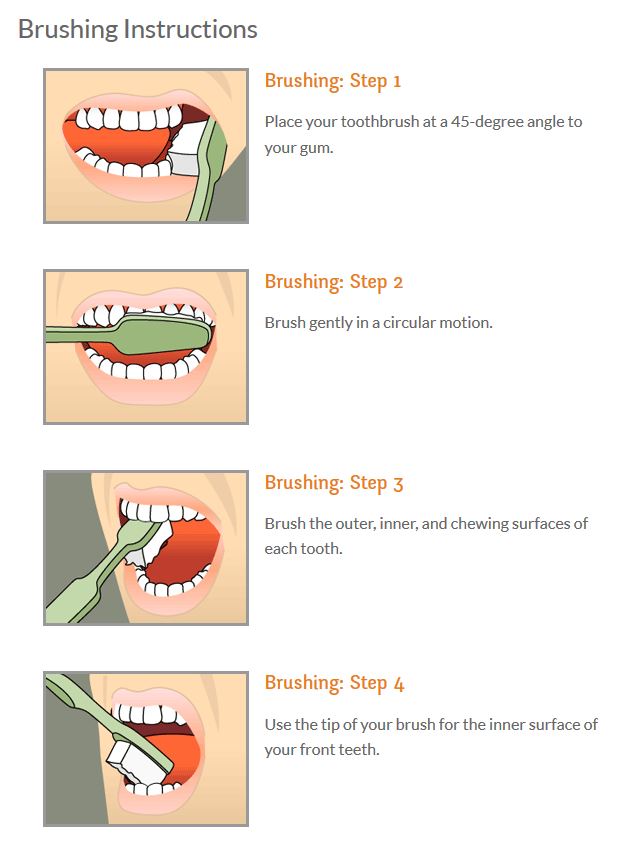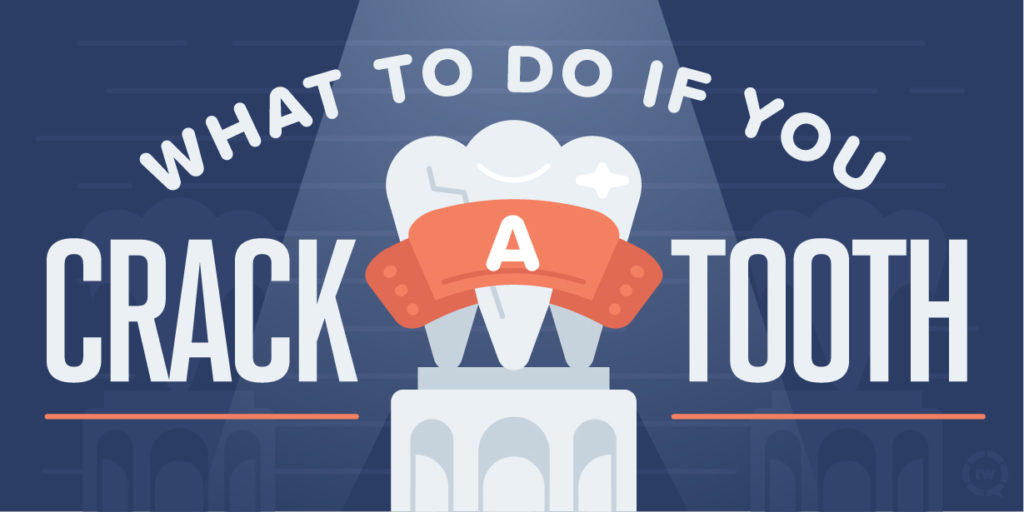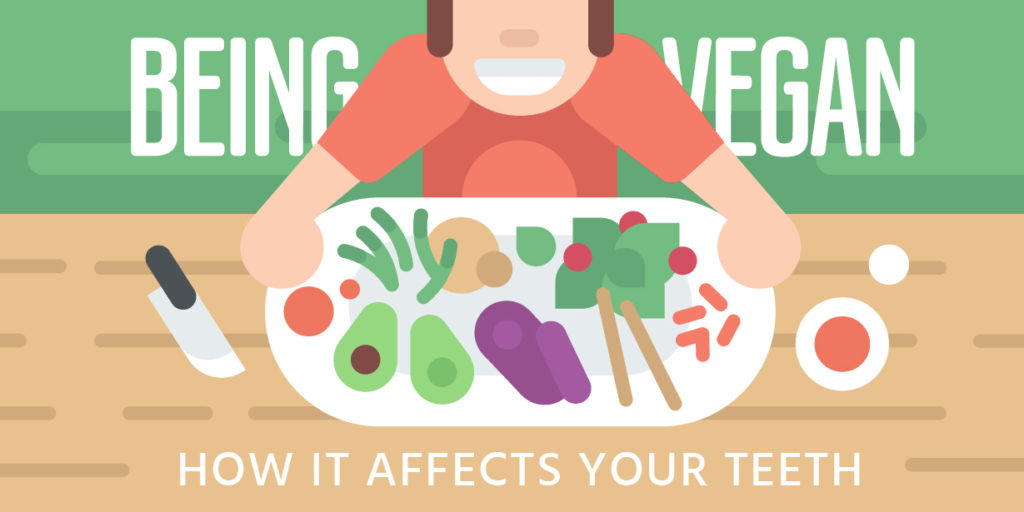Baby Steps Series: Choosing the Right Toothpaste
June 13th, 2018
[caption id="attachment_602" align="alignleft" width="640"] Baby Steps Series: Choosing the Right Toothpaste[/caption]
Baby Steps Series: Choosing the Right Toothpaste[/caption]
Question: Doctor, what toothpaste do you recommend for my children?
Answer: Any fluoride toothpaste that will help you maintain a good oral health routine!
Question: What's the big deal about fluoride? What does it do?
Answer: Fluoride helps by reducing the risk of dental decay (or dental cavities) in several ways.
First, it helps to remineralizes (or harden) the enamel. Every time you eat your teeth get bathed in an acidic environment. This acid is important to breakdown food, but it can also breakdown the enamel on your teeth. This is the reason why you should not constantly snack throughout the day...the acid will eventually breakdown the enamel. If the enamel has a break, it causes a pit to form, which is now considered a cavity. Using a fluoride toothpaste after meals and snacks will reduce the acid attack but remineralizing the enamel.
Second, fluoride can strengthen weakened enamel in surface cavities. Proper use can prevent a surface cavity from growing, therefore possibly eliminating the need for a dental filling.
Finally, fluoride has antibacterial properties. It helps to prevent acid production from plaque producing bacteria.
Question: I have a toddler, is a fluoride toothpaste safe for him? If it is, when should I start using it to brush his teeth?
Answer: The American Academy of Pediatrics recommends using a fluoride toothpaste as soon as first teeth erupt. This means starting to brush with a fluoride toothpaste from an early age. Normally teeth start to erupt around 6 months of age.
Question: How much toothpaste should I use for my toddler? I'm afraid he will swallow it and get a tummy ache.
Answer: Great question. For children who are not able to spit out on their own, the American Academy of Pediatric Dentistry recommends using a "dry rice grain" amount of flouridated toothpaste. This amount will give your child the proper benefits of flouride without causing them to have a tummy ache, if they swallow any of the paste.
Question: How do I pick the right fluoride toothpaste for my child?
Answer: We know you have a million and one choices facing you in the toothpaste aisle, and it can be hard to figure out what’s best for you. Most people, however, can use any toothpaste that has the ADA (American Dental Association) seal of approval. This seal means that the toothpaste contains fluoride, has the right amount of abrasiveness (not too little and not too much), and has been shown to be both safe and effective for intended use. If you have any sensitivity to dyes, preservatives, or certain ingredients, opt for a toothpaste that is free of those, such as Tom's of Maine. Just make sure it has fluoride.
Question: What is the proper way to brush my child's teeth?
Answer: Here is a quick graphic that will illustrate the basic technique of toothbrushing. Note, most children cannot master toothbrushing on their own so continue to supervise their toothbrushing and then go in for a quick spot check after they are done. For more information, visit our preventive care page.
We can’t say it enough: fluoride is your best form of cavity prevention!
At All Smiles Pediatric Dentistry, we incorporate proven techniques to share with you and your child at each dental checkup visit. Dr. Allen Job and his team are committed to providing the latest in oral health care prevention. For more information about brushing and flossing check out our preventive care page. Still want more information? Check out our blog posts on prevention! Our practice is centrally located in San Diego, CA.
Scheduling an appointment for your child is easy! Start here to schedule an appointment. All of our forms are online. Fill them out securely from your smartphone or tablet and hit send. On appointment day, your child will be seen at their scheduled time. For example, if you have a 9:00 AM appointment, your child will be seen at 9:00 AM.
*This blog is part of the Baby Steps Series. Look for future blogs in this series.
 Dr. Allen Job, DDS, MS, MPH, MS is a board certified pediatric dentist who practices in San Diego, California, where he specializes in prevention. He is also an assistant professor at Loma Linda University Department of Pediatric Dentistry.
Dr. Allen Job, DDS, MS, MPH, MS is a board certified pediatric dentist who practices in San Diego, California, where he specializes in prevention. He is also an assistant professor at Loma Linda University Department of Pediatric Dentistry.







